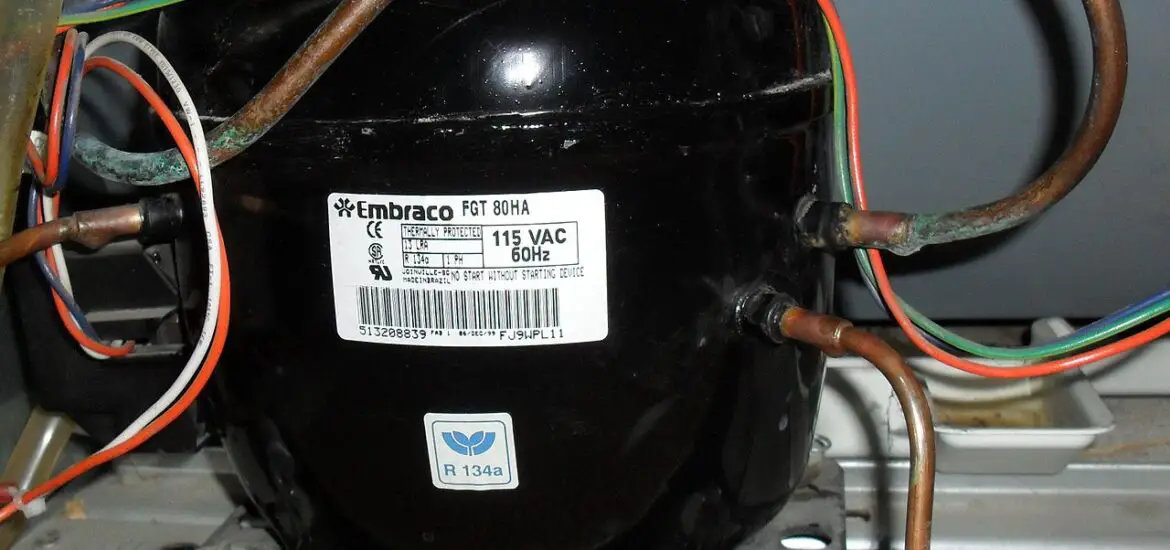So, what is compressor efficiency? It’s the key that unlocks a world of energy savings. Compressor efficiency is a critical performance parameter that significantly affects the operational effectiveness of many industrial processes. In the most basic terms, it’s about how much work a machine can do with a given amount of energy.

Table of Contents
Brief Overview
Picture this: compressor efficiency is like your car’s fuel efficiency – but for machines. The better the fuel efficiency, the less you spend at the gas station. Similarly, a more efficient compressor does more work with less energy, saving costs. It’s a pretty neat concept, don’t you think?
Detailed Explanation of Compressor Efficiency
Let’s dig a bit deeper into the concept of compressor efficiency. Here’s where we look under the hood and get a good grip on what makes these mechanical beasts tick.
The Basics of Compressor Efficiency
Imagine if your car was a gas guzzler, burning through fuel faster than a kid through a candy store. That’s what a low-efficiency compressor looks like – wasting energy and costing you more. So, compressor efficiency is all about getting the best bang for your energy buck.
How Compressor Efficiency Works
Ready to explore the secret life of compressors? Here’s where the fun begins!
The Role of Input and Output
You’ve heard about the law of conservation of energy, right? Well, in compressor language, it’s about balancing the energy input (what goes in) with the work output (what comes out). The higher the ratio of work to energy input, the more efficient your compressor is.
Factors Affecting Compressor Efficiency
Ever think about why some cars get more miles per gallon than others? It’s the same with compressors. Factors like design, maintenance, and operating conditions can significantly impact efficiency.
Types of Compressor Efficiency
In the world of compressors, efficiency comes in different flavors. Let’s explore the three main types, shall we?
Isentropic Efficiency
If compressors had superheroes, isentropic efficiency would be one of them. This metric represents the ideal efficiency a compressor could achieve under perfect conditions.
Volumetric Efficiency
Volumetric efficiency is like the measure of how much air your compressor can inhale in a single breath. It shows how effectively a compressor uses its displacement volume.
Mechanical Efficiency
Mechanical efficiency is a bit like a health check-up for your compressor. It tells you how well the mechanical parts of your compressor are doing their job.
Check out these other related articles…
Will Compressor Run Without Freon? [Answered]
Efficiency of Compressor: A Comprehensive Analysis
Compressor Volumetric Efficiency: Your Comprehensive Guide
Compressor Adiabatic Efficiency: Your Ultimate Guide
Compressor Energy Efficiency: Your Comprehensive Guide
Measuring and Improving Compressor Efficiency
Think of compressor efficiency as a vital sign. It’s an ongoing, dynamic parameter that helps you assess the health of your compressor. Just as doctors use tools like thermometers and stethoscopes to measure a patient’s vital signs, engineers and technicians use a range of methods to measure compressor efficiency. And, just like you might improve your health through diet and exercise, there are ways to boost your compressor’s efficiency too. Let’s delve into this a bit deeper.
Methods of Measuring Compressor Efficiency
How do you know if your compressor is efficient? The answer lies in measuring it, and believe me, it’s not rocket science. Various methods exist, each with its own pros and cons, but they all aim to capture the relationship between the energy put into the compressor and the useful work it puts out.
One common method is to conduct an energy audit. This is a comprehensive review of the compressor system, focusing on energy use and losses. It’s kind of like a full-body check-up for your compressor. Other methods involve more detailed performance testing, where you measure parameters like pressure, temperature, and power input under different operating conditions.
Of course, the key to effective measurement is accuracy. Without it, the results are as good as tossing a coin. That’s why proper calibration of measurement instruments and rigorous testing procedures are crucial. If the pressure gauge is off or the temperature sensor is faulty, the efficiency readings can go haywire. So, good measurement practice is a must. Can’t stress this enough!
Ways to Improve Compressor Efficiency
Alright, now that we know how to measure efficiency, how about improving it? That’s where the rubber meets the road.
First off, regular maintenance is a must. It’s like keeping your car in good shape with regular oil changes and tire rotations. For a compressor, this could involve routine checks and servicing of parts like valves, seals, and filters. After all, a well-maintained compressor is a happy, efficient compressor.
Next, operating the compressor within its optimal range is key. You wouldn’t rev your car’s engine in the red zone all the time, would you? It’s the same with compressors. They have sweet spots where they run most efficiently, and knowing these can go a long way in enhancing performance.
Finally, smart control strategies can work wonders. These are like the advanced cruise control systems in modern cars, helping to run the compressor at its best. This could involve techniques like start/stop or load/unload controls or more sophisticated methods like variable speed drives. By adjusting to the demand, these controls ensure that the compressor isn’t working harder than it needs to. So, more efficiency and more savings, win-win!
Impact of Compressor Efficiency
The magic of compressor efficiency is not just about the mechanics. It’s also about the far-reaching impacts it has on energy consumption and operational costs.
Efficiency’s Effect on Energy Consumption
Consider this: The more efficient your compressor, the less energy it consumes. That’s good news for your utility bill and the planet!
Efficiency and Operational Costs
More efficiency means less energy consumed, which directly translates to cost savings. Sounds good, right?
